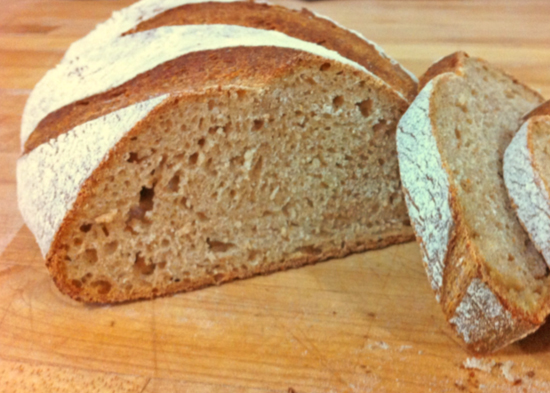Unique Culinary Careers: James Simpkins
When ICE President Rick Smilow and Anne E. McBride wrote "Culinary Careers: How to Get Your Dream Job in Food," they discovered a plethora of food jobs they had never heard of before. Since the book's release, they have been discovering even more interesting career paths in the food world. DICED shares some of them with you in a reoccurring feature, “Unique Culinary Careers.”
Some careers in the culinary arts take you out from the kitchen and into the library. Studying food from a scholarly perspective reveals how food is often more than just what we eat. Academic food studies programs are popping up at universities across the country. ICE alum James Simpkins recently completed his master’s degree in food studies at University of Connecticut.
After designing the program entirely for himself, he is now continuing his research as the inaugural Culinary Artist-in-Residence at the Quimby Colony in Portland, Maine. He lives on the colony where he lives alongside other artists and is working on developing historical recipe reconstructions from 19th-century American literature (i.e., how did Jo in "Little Women" make turkey). For this profile, we asked James about life on the colony, how to define food studies and his memories of ICE.

How would you describe your position?
On the colony, I am here to create a unique perspective in the culinary arts and develop myself as a professional. I have access to different ways of thinking about food, whether it’s cooking, reading books or participating in a meal. Food isn’t just stuff we eat; there are complex cultures and behaviors built up around food. The ways we eat can say a lot about who we are. That’s what I’ve charged myself with studying.
What is life on the colony like?
I have certain duties, such as making one meal five times a week, but I am very free to do my own thing and develop my own unique perspective and contribution to the culinary arts. People here come and go. I’m here for six months, but most of the other artists, often fashionistas, are here for three. I certainly don’t want for much. I get to do things like invite the owner and brewer from Allagash Brewery over for dinner just so we can have a meal (plus, I love Belgian beer). I do a certain amount of community outreach. We are an exclusive community, but we reach out and tell people about what we are doing. It’s a very unique environment.
How did you get this job?
I heard about the position through the ICE Alumni Listings. I love looking through the newsletter and seeing what is going on. I tend not to focus on the line cook or executive chef jobs. The position at Quimby Colony really appealed to my sense of the unorthodox — sort of a different expression of my art. I had just finished my master’s, so it was kind of a graduation gift to myself.
How would you describe food studies?
What I’m doing now is a practical application of my thesis about 19th-century cooking. I think food studies is a collection of different perspectives. There are a lot of different compartments of study involved. I learned history, read novels and took anthropology classes. It was necessary to gather as much information as possible to investigate all the various behaviors, attitudes and practices around food. Food studies is about how we relate to the world around us through food.
How did ICE help prepare you for a career as a food scholar?
Before coming to ICE I had toured two other schools. At ICE, as I came up the stairs and opened the door, I instantly felt at home. I turned to my dad and said, “I’m going here,” before we even sat down with anyone. I finished the program in 1998 and then did my externship in France. Even with all the development and growth, the school has gone through, it still has a very familiar quality. It felt less like a business, and more like a laboratory for exploring food.
My Chef Instructors instilled us with a sense that being a student never ended and that helped prepare me for a long career. They were very realistic about instilling that they were giving us the fundamentals to start, and made no empty promises of being a master chef. They were committed and dedicated to teaching us with a lot of energy, but there was an important sense of humility as well.
Interested in starting your own unique culinary career? Pick up a copy of Culinary Careers and get started now.


Add new comment